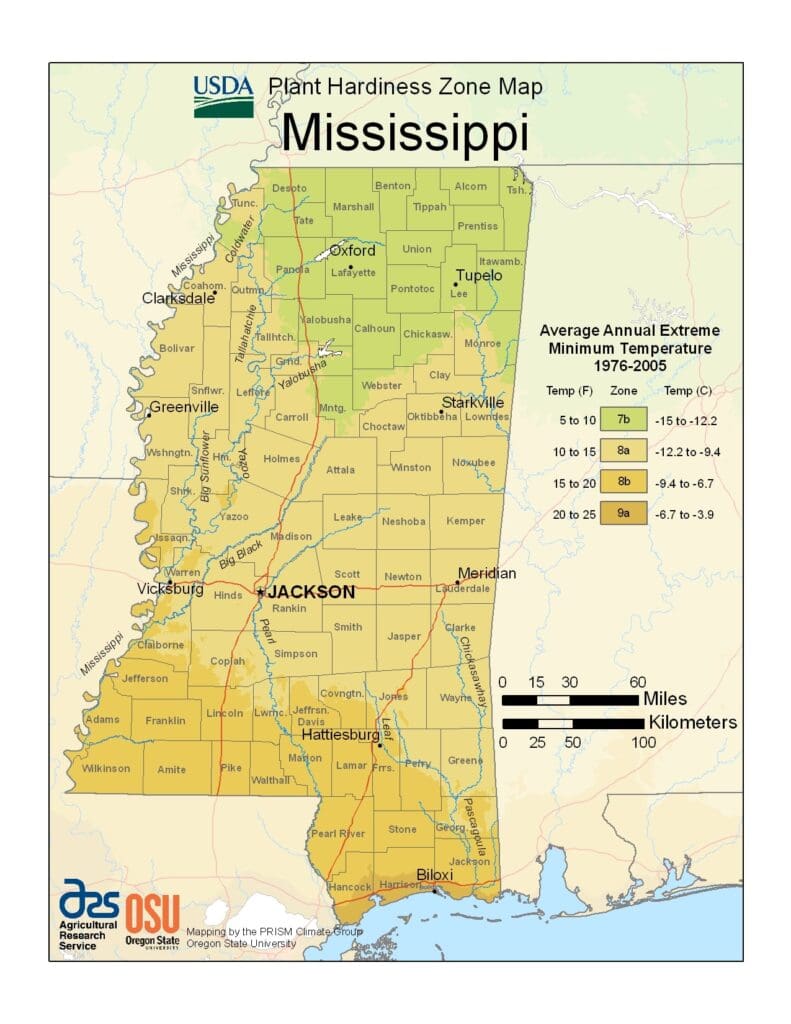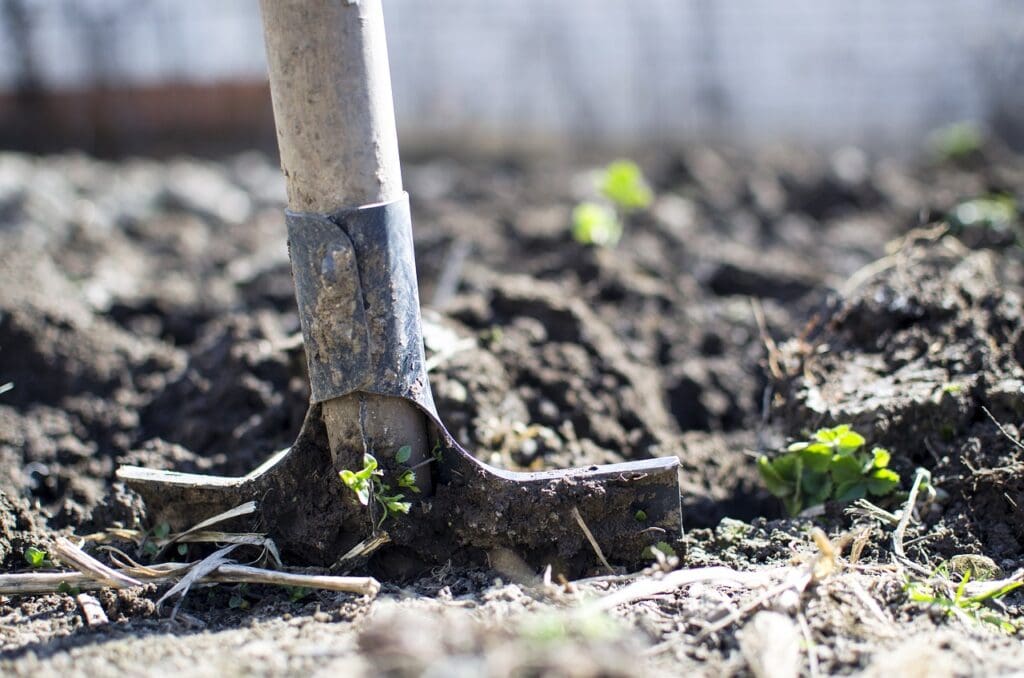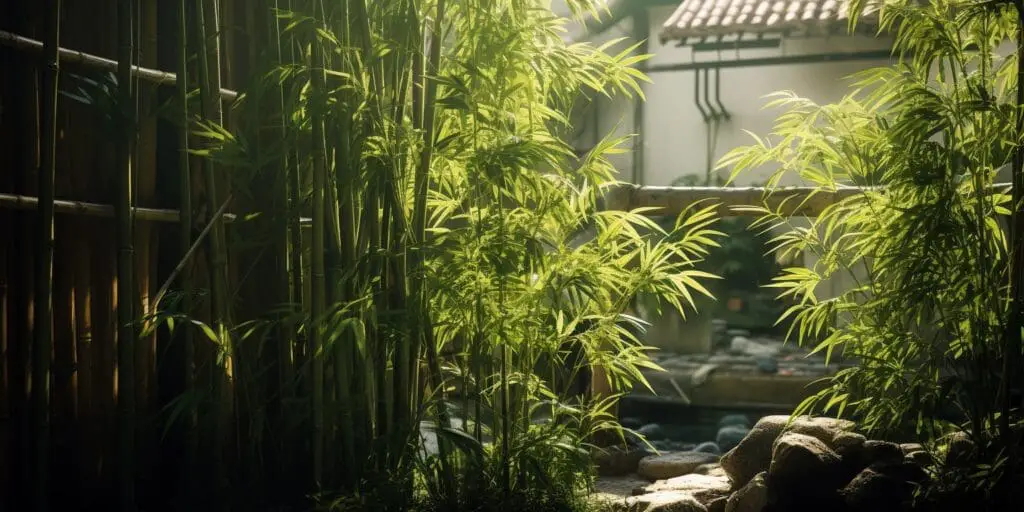Growing Bamboo In Mississippi
Bamboo, a versatile and sustainable plant, holds immense potential for cultivation in Mississippi’s climate.
To successfully cultivate bamboo in Mississippi, it is crucial to select suitable bamboo species that can thrive in the local climate conditions. Additionally, providing ideal growing conditions such as proper soil preparation and choosing appropriate planting locations are essential factors for successful bamboo cultivation.
Key Takeaways
- Mississippi’s warm, humid climate with ample rainfall is ideal for bamboo growth.
- Proper soil preparation techniques, including proper drainage and adding organic matter, are necessary for successful bamboo cultivation in Mississippi.
- Regular monitoring and pest control, as well as adequate watering practices, are essential for preventing pest infestations and maintaining healthy bamboo plants.
- Bamboo cultivation in Mississippi offers various benefits, including environmental benefits, potential utilization in furniture and construction, and the potential for bamboo to be a renewable energy source.
Types of Bamboo Suitable for Mississippi Climate
Various species of bamboo that thrive in the Mississippi climate offer a range of options for gardeners and landscapers looking to add this versatile plant to their outdoor spaces. Mississippi’s warm, humid climate is suitable for growing several varieties of bamboo.
One popular choice is the Golden Bamboo (Phyllostachys aurea), which can grow up to 35 feet tall and provides a stunning visual display with its golden stems. However, this species should only be planted with caution and measures to ensure it does not spread and become invasive.
Another option is the Buddha Belly Bamboo (Bambusa ventricosa), which has a unique swollen stems that make it a standout feature of any garden landscape.
There are many other bamboo varieties suitable for Mississippi’s climate. Selection should have regard to the species adaptability to the specific climate zone and growing conditions.
Ideal Conditions for Growing Bamboo in Mississippi
Optimal environmental conditions in this region enable successful cultivation of bamboo. Mississippi’s warm and humid climate provides the ideal conditions for the propagation of bamboo. The state’s ample rainfall, averaging around 60 inches per year, ensures that bamboo plants receive sufficient hydration. This consistent moisture level also helps to prevent the plants from drying out, which is crucial for their growth and survival.

Additionally, Mississippi’s long growing season allows bamboo to establish strong root systems and achieve maximum height potential. However, it is essential to note that while bamboo thrives in this climate, it can attract pests such as aphids and spider mites. Regular monitoring and appropriate pest control methods should be implemented to ensure healthy growth.
Adequate watering practices should also be employed to maintain soil moisture levels without causing waterlogging or root rot.
Choosing the Right Location for Bamboo Planting
To ensure successful cultivation of bamboo, careful consideration should be given to selecting an appropriate planting location. When selecting bamboo varieties for planting in Mississippi, it is important to choose those that are well-suited to the region’s climate and soil conditions.
Mississippi has a humid subtropical climate with hot summers and mild winters, so varieties that can tolerate these conditions should be preferred. It is also essential to consider the growth habits of different bamboo species. Some species spread rapidly through underground rhizomes, while others grow in clumps.
The chosen location should have enough space to accommodate the desired growth habit without encroaching on neighboring plants or structures. Additionally, proper bamboo planting techniques such as providing adequate drainage and preparing the soil with organic matter will contribute to successful cultivation.
Preparing the Soil for Bamboo Cultivation
One important aspect of successful bamboo cultivation involves adequately preparing the soil. Soil preparation techniques play a crucial role in providing the necessary nutrients and water retention for healthy bamboo growth.
Before planting, it is recommended to ensure that the soil is well-drained and has a pH level between 6 and 7. Adding organic matter such as compost or well-rotted manure can improve soil fertility and structure.
Although it is a relatively low maintenance plant, bamboo requires adequate nutrients, including nitrogen, potassium, and phosphorus, for optimal growth.



Watering techniques also play a vital role in bamboo cultivation, as they need regular watering during dry periods to prevent drought stress. Applying mulch around plants can help retain moisture and regulate soil temperature.
Planting and Propagating Bamboo in Mississippi
Planting and propagating bamboo requires careful consideration of environmental factors and selecting appropriate bamboo species that are well-suited to the region’s specific climate conditions and the planting site’s features and constraints.
When it comes to propagation methods, there are two main techniques for growing bamboo: division and culm cuttings.
Division involves separating a mature clump into smaller sections, ensuring each section has sufficient roots and shoots for successful growth.
Culm cuttings involve cutting segments from mature culms (i.e. stems/stalks) and planting them directly into the soil.
Both methods require proper care, such as providing adequate water and nutrients during the establishment phase.
Bamboo cultivation in Mississippi does present certain challenges, such as controlling invasive spread due to the plant’s aggressive nature. This is moreso the case for running varities of bamboo, such as Phyllostachys varieties.
It is important to consider and implement containment strategies like installing root barriers or regular maintenance through rhizome pruning to prevent unwanted spreading beyond desired areas. Installing root barriers is much easier at the inntial planting stage than later on.
Maintenance and Care Tips for Healthy Bamboo Growth
Ensuring the health and vitality of bamboo requires regular maintenance and careful attention to its specific needs. Pruning techniques play a crucial role in maintaining healthy growth. It is important to remove any dead or damaged canes, as well as thinning out overcrowded areas to promote airflow. This helps minimise conditions favorable for various pests and diseases taking hold. Regular pruning also helps control the size and shape of the bamboo stand.
Watering requirements for bamboo in Mississippi are relatively high, especially during hot summer months. Regular watering, providing 1-2 inches of water per week, is necessary to keep the soil consistently moist but not waterlogged, which it is ideal for optimal growth.
Additionally, pest control measures should be implemented to prevent damage from common pests like aphids or mites. Inspecting plants regularly for signs of infestation and employing organic insecticides if and when necessary will help ensure healthy bamboo.
Harvesting and Utilizing Bamboo in Various Applications
Harvesting and utilizing bamboo in a variety of applications provides an opportunity to explore the versatility and sustainability of this remarkable plant. Bamboo has long been used for crafting various items, such as furniture, baskets, and musical instruments. Its strength and flexibility make it an ideal material for these purposes.
Additionally, bamboo is gaining recognition as a sustainable building material due to its rapid growth and durability. It can be used for constructing houses, bridges, and even entire communities. While these feats of engineering and construction may be beyond the skill of an ordinary garderner, the amazing strength and resilience of bamboo can be utilised in various novel ways around the house and garden. Here are a few examples:
- Trellis and supports: Bamboo poles can be used to create trellises for climbing plants like roses, beans, or cucumbers. Its strength and flexibility make it an ideal material for creating sturdy supports.
- Garden edging: Bamboo can be used as a natural and decorative edging material for garden beds or pathways. Its long-lasting properties and resistance to weather make it a reliable choice.
- Planters and pots: Bamboo can be fashioned into unique planters or pots for indoor or outdoor use. Its natural aesthetic adds a touch of elegance to any garden or patio.
- Art and crafts: Bamboo can be used for various artistic and craft purposes, such as making wind chimes, wall hangings, or even musical instruments. Its versatility makes it a favorite material for creative projects.
- Garden tool handles: Bamboo can be used to create sturdy and ergonomic handles for garden tools like shovels, rakes, or hoes. Its natural strength and shock-absorbing properties make it an excellent choice for comfortable use.
Bamboo also holds promise as a source of renewable energy. Its high cellulose content makes it suitable for producing bioenergy through processes like gasification or fermentation. By harnessing this potential, we can reduce our reliance on fossil fuels and contribute to a greener future.
Frequently Asked Questions
Q: What is clumping bamboo?
A: Clumping bamboo is a type of bamboo that grows in tight, dense clumps rather than spreading out like running bamboo. It is often preferred for landscaping and privacy screening purposes as it provides a more contained growth habit.
Q: Is bamboo cold hardy?
A: Yes, bamboo can be cold hardy depending on the species. There are many cold hardy bamboo varieties that can withstand freezing temperatures and thrive in climates such as Mississippi.
Q: Can bamboo be grown commercially in Mississippi?
A: Yes, bamboo can be grown commercially in Mississippi. With the right conditions and proper cultivation techniques, it is possible to establish a successful bamboo farm in the state.
Q: What are the benefits of growing bamboo?
A: Growing bamboo has several benefits. It is a fast-growing crop that can be harvested for various purposes. It is also a great option for privacy screening, as bamboo can form a dense hedge that acts as a natural barrier.
Q: Is bamboo an invasive species in Mississippi?
A: Bamboo can be classified as an invasive species if it is not properly contained. However, clumping bamboo varieties are less likely to spread aggressively compared to running bamboo. It is important to select the right bamboo species that suits your intended purpose and manage its growth accordingly.
Q: Can bamboo be used for timber production?
A: Yes, bamboo can be used for timber production. Certain bamboo species have strong and durable stalks that are suitable for construction and structural purposes. It can be a sustainable alternative to traditional timber.
Q: What are the ideal growing conditions for bamboo in Mississippi?
A: Bamboo thrives in moist, well-draining soil with a slightly acidic pH. It prefers areas with full sun exposure but can tolerate partial shade. Providing regular water and adequate spacing between plants can promote healthy growth.
Conclusion
In conclusion, growing bamboo in Mississippi is a viable option for individuals interested in cultivating this versatile plant. With the right selection of bamboo species suitable for the climate, ideal growing conditions, proper soil preparation, and regular maintenance and care, healthy bamboo growth can be achieved.
Harvesting and utilizing bamboo in various applications offers numerous benefits for both personal use and commercial ventures.nnHowever, it is essential to address any common issues that may arise during the cultivation process to ensure successful growth.

